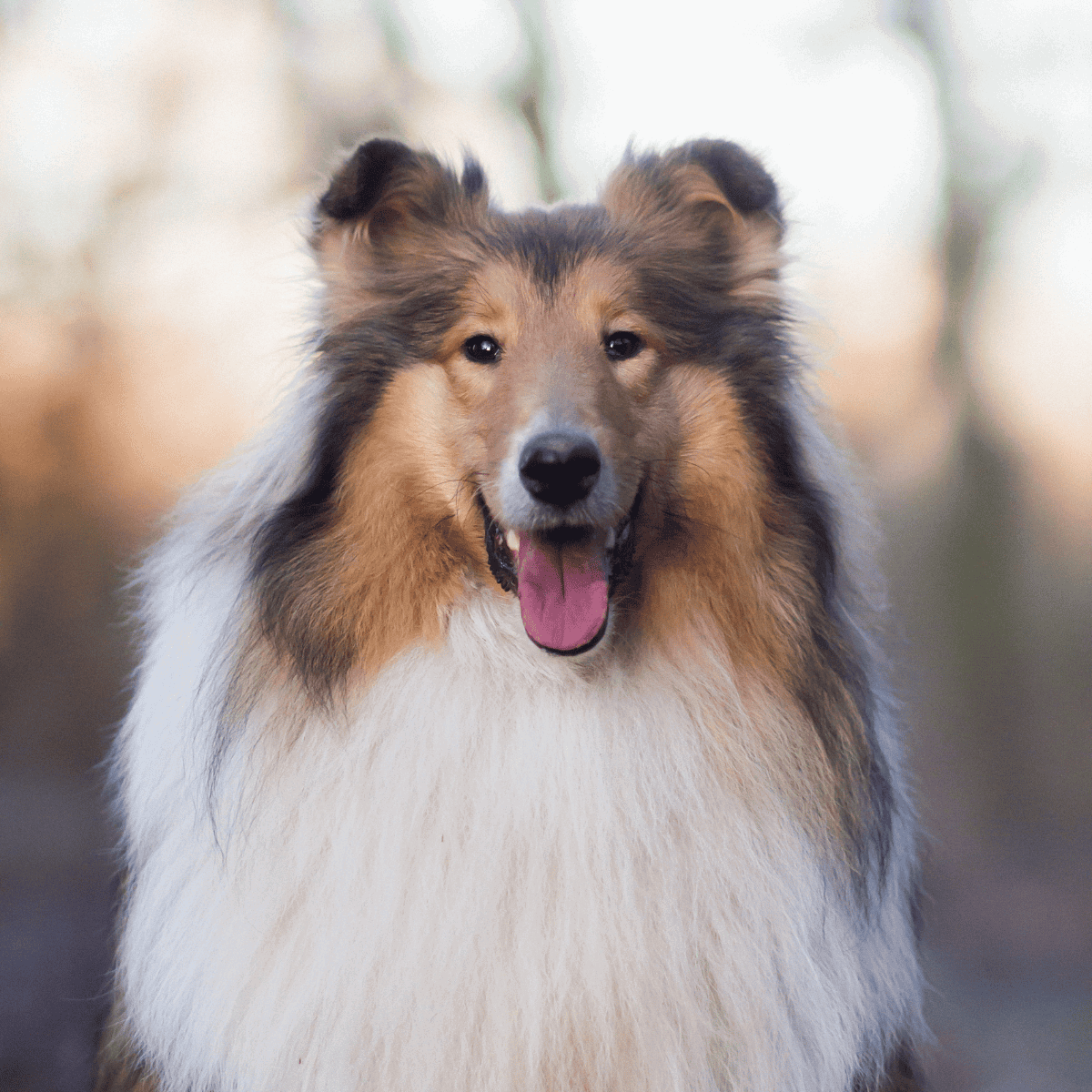
Collie
Shortcuts
The Collie is a distinguished and beloved dog breed celebrated for its majestic looks and loyalty. It comes in two varieties: the rough Collie with a full coat and the sleek, smooth Collie. Both stand 22 to 26 inches tall and showcase grace and a formidable presence with their unique looks and gentle demeanor.
These dogs boast a variety of coat colors, from sable and white to tricolor, blue merle, and white, creating a visual delight. Collies are intelligent, loyal, and excellent with families, especially children. They thrive on companionship and exercise, making them beautiful, smart, and devoted pets.
Breed Overview

Height
22 – 26 inches
Weight
50 – 75 pounds
Lifespan
12 – 14 years
Colors
White, tri-color, blue merle, sable, sable merle, sable, and white
Suitable for
Active families who are looking for an active dog
Temperament
Intelligent, friendly, loyal, and active


Height
22 – 26 inches
Weight
50 – 75 pounds
Lifespan
12 – 14 years
Colors
White, tri-color, blue merle, sable, sable merle, sable, and white
Suitable for
Active families who are looking for an active dog
Temperament
Intelligent, friendly, loyal, and active

Collies are medium- to large-sized dogs with a distinctive and elegant appearance. Their graceful, athletic build reflects their history as herding dogs. The Collie is suitable for families and is especially good with children. Due to its alertness and willingness to please, it makes an excellent watchdog.
Characteristics
Energy

Health

Sociability

Trainability

Lifespan


Enjoying this read?
We publish this content for free to generate interest in our Premium members' area. By subscribing, you can ask the writer any questions related to pet care and this article, get access to 100+ Premium Pet Care Guides and go Ad-Free with DogFix Premium for $2.99.
Health Conditions
Collies are generally robust dogs with a lifespan of 12 to 14 years. Prospective owners should be aware of specific health issues. Puppies aged 6-8 weeks must undergo an eye check by a board-certified veterinary ophthalmologist to screen for Collie’s eye anomaly.
Some Collies may be genetically sensitive to certain drugs, known as the MDR1 mutation. It’s advisable to ask breeders about this and other health guarantees.
Minor Conditions
- Skin Allergies
- Dental Problems
- Eye Issues
Serious Conditions
- Multi-Drug Resistance
- Collie Eye Anomaly
- Hip Dysplasia
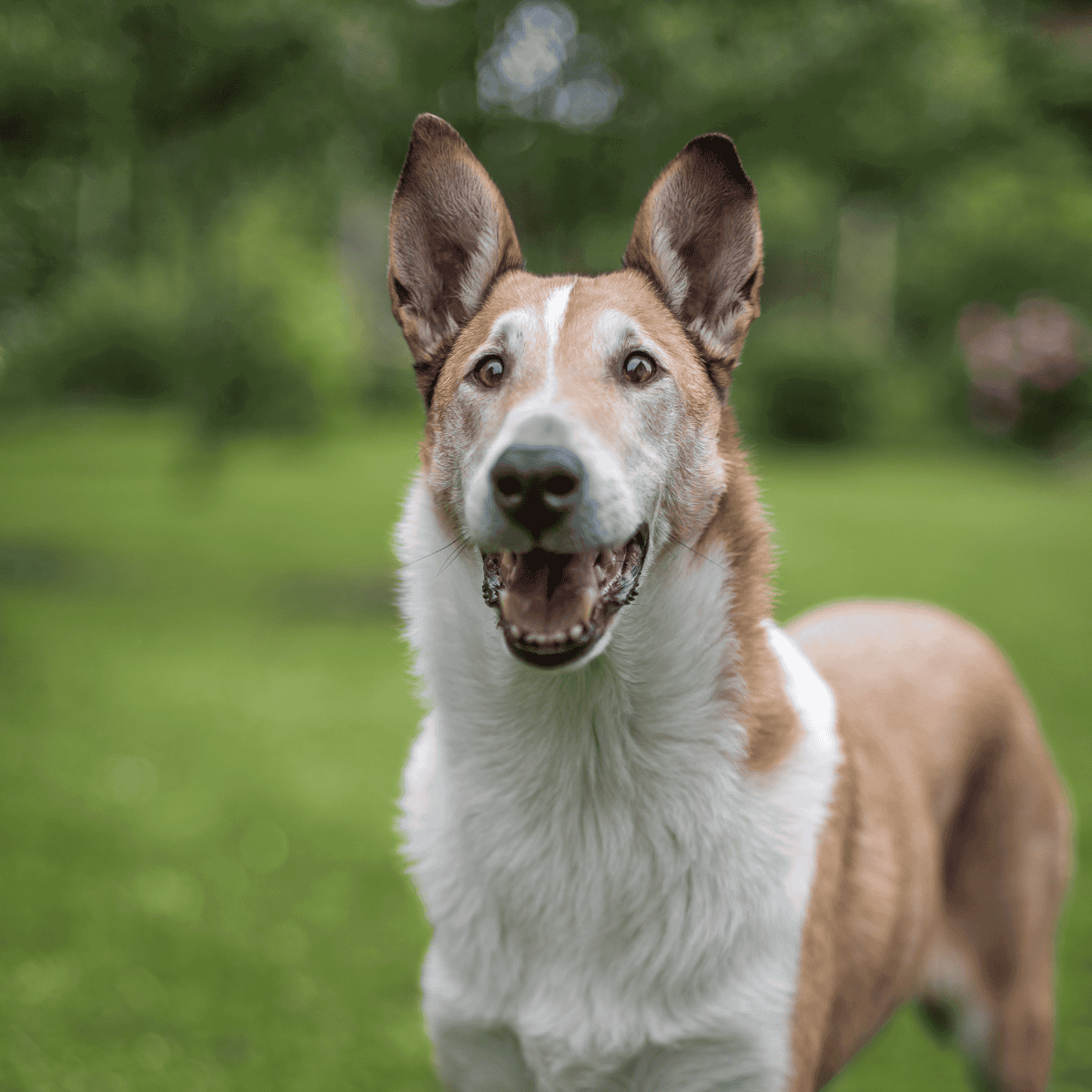
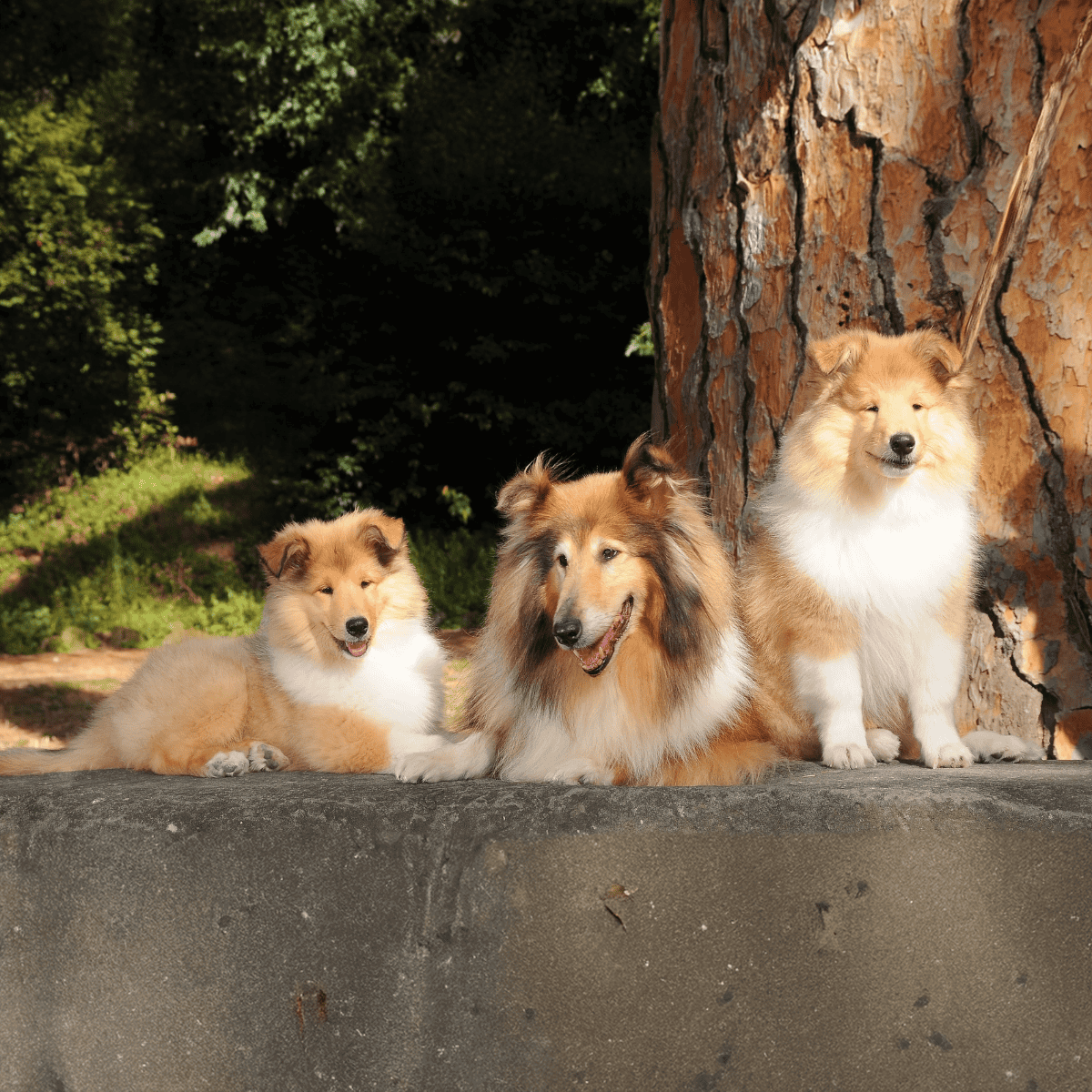
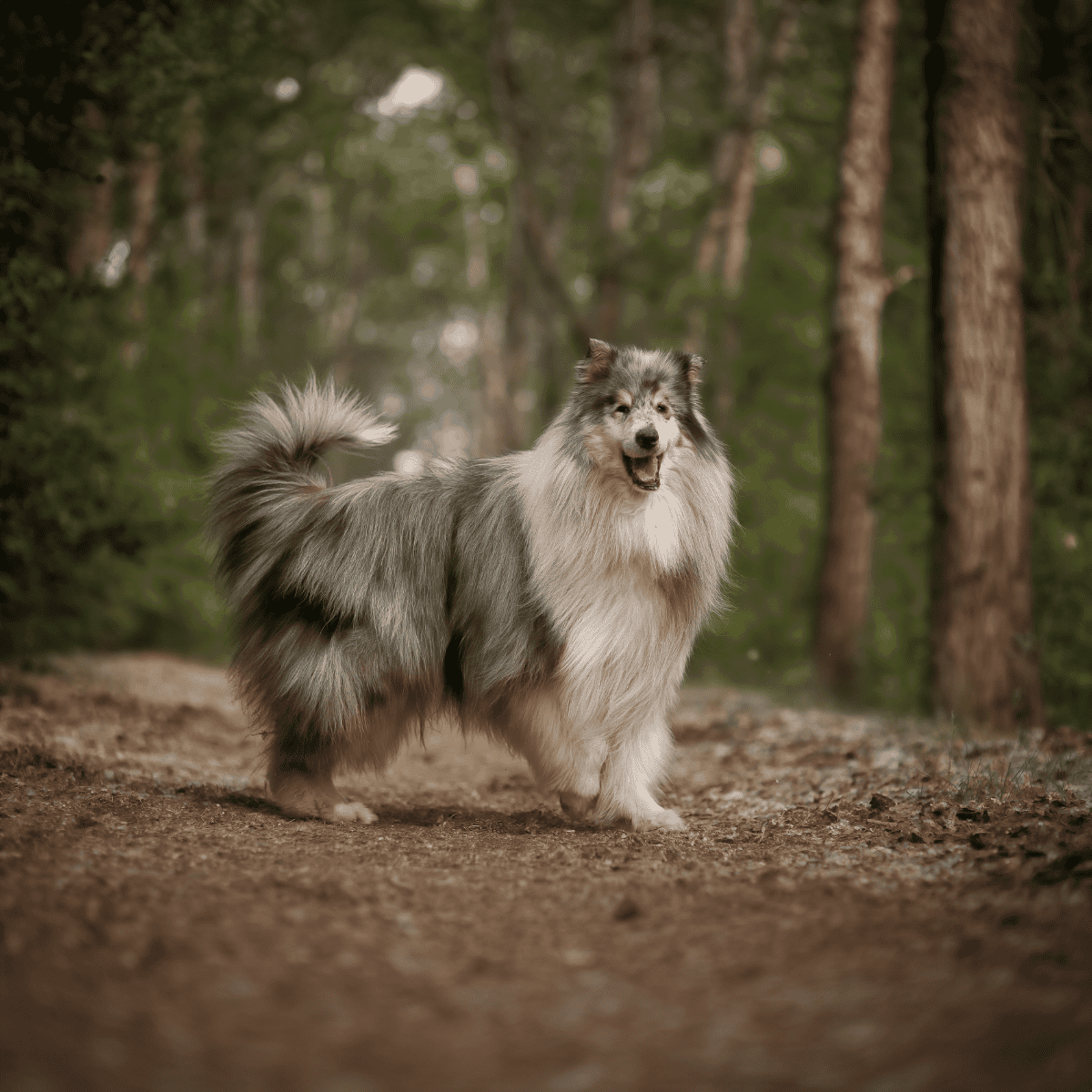
Collie Puppies
When considering a Collie puppy, explore adoption options from rescue organizations or shelters. If you buy from a breeder, ensure they are reputable and focus on the dogs’ health and well-being through screenings and nurturing environments.
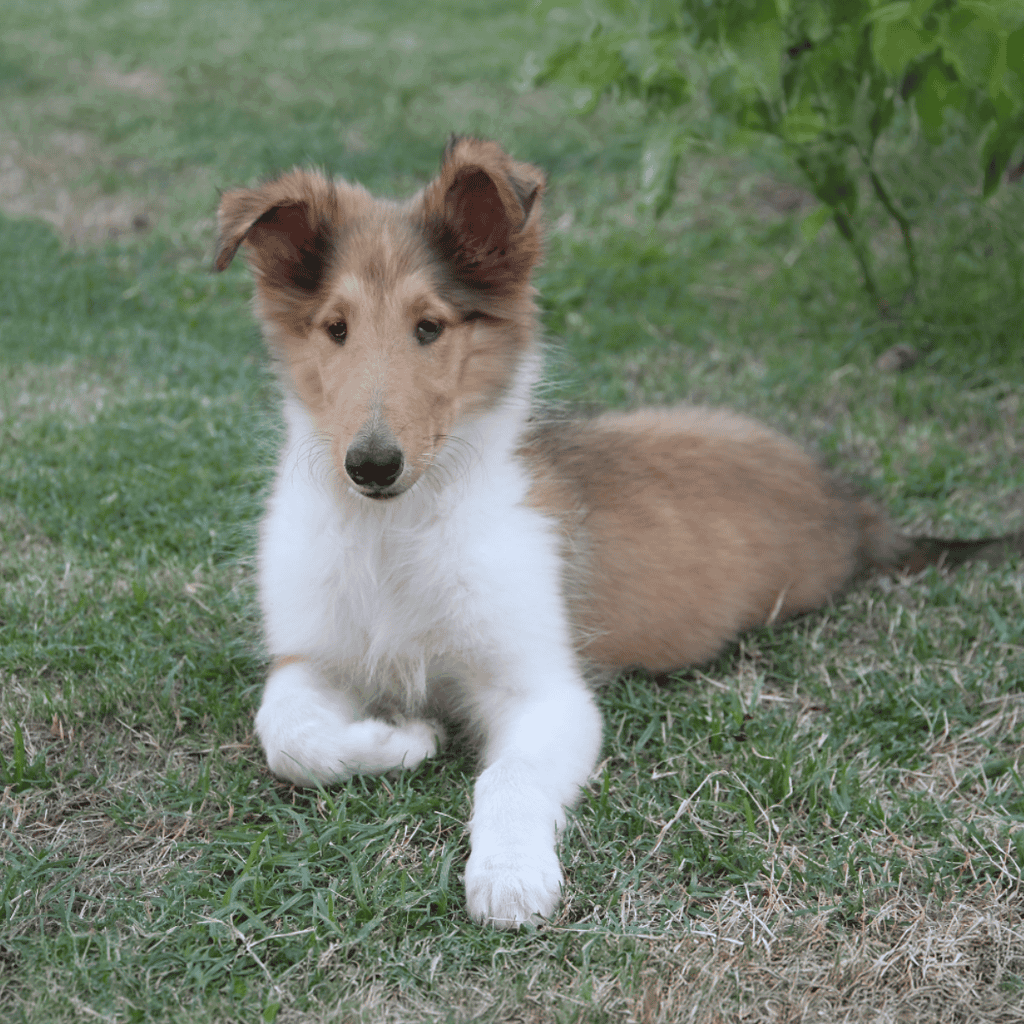
However, due to their herding instincts, Collies might try to herd smaller pets, necessitating supervision to ensure all household animals remain safe and harmonious. This early introduction to pets and consistent supervision reinforce harmonious coexistence.
Temperament & Intelligence Of The Collie
Collies are energetic and thrive on tasks like retrieving or herding, needing ample physical activity to stay content. Their energy ensures they are both active and, when exercised, calm enough to enjoy relaxing moments with their owners. Their agility and skill are notable, and they can quickly leap into obstacles, thanks to their athletic build!
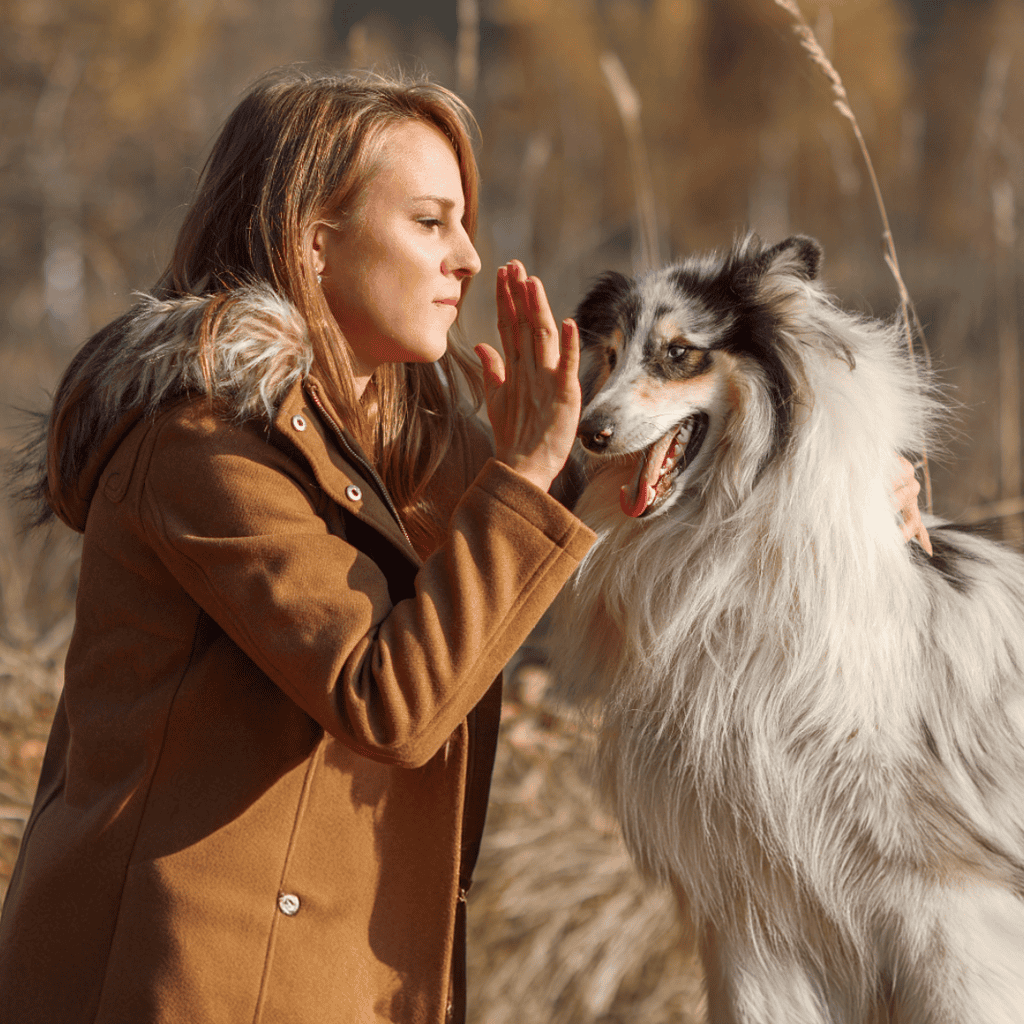
These dogs are renowned for their intelligence, which allows them to learn quickly and be trained with relative ease. They respond well to threats and affection as motivation during training sessions. This blend of physical agility and mental sharpness makes Collies particularly adept and enjoyable companions.
Are These Dogs Good For Families?
Collies are excellent family pets, known for their loyalty and playful behavior. They excel in active environments with children who engage in play and exercise. These dogs are protective, seeing their family as their pack, strengthening household bonds. However, they can be nervous around strangers and bark when feeling threatened, requiring careful introductions to young children.
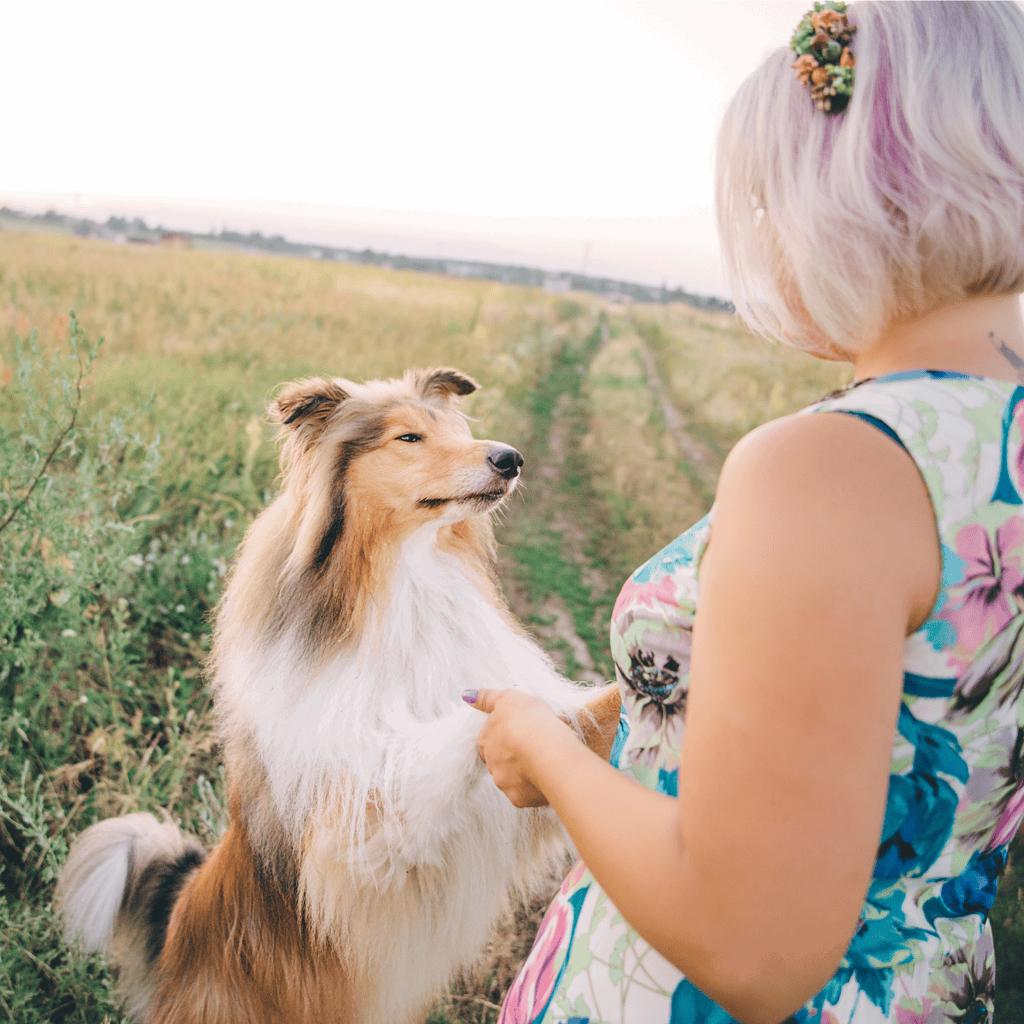
Their tendency to herd, demonstrated by nipping at heels, can be a reaction to the unpredictable behavior of young children. Collies thrive on companionship and are ideal for homes with someone frequently present. Their intelligence and desire to learn make them easily trainable, and they fit nicely into family life with their eagerness to please and ability to learn new tricks and commands.
Does This Breed Get Along With Other Pets?
When socialized from an early age, collies generally get along well with other animals, focusing mainly on their owners. On walks, their interest in other dogs is usually minimal. Early socialization with various animals and environments makes them adaptable and comfortable.
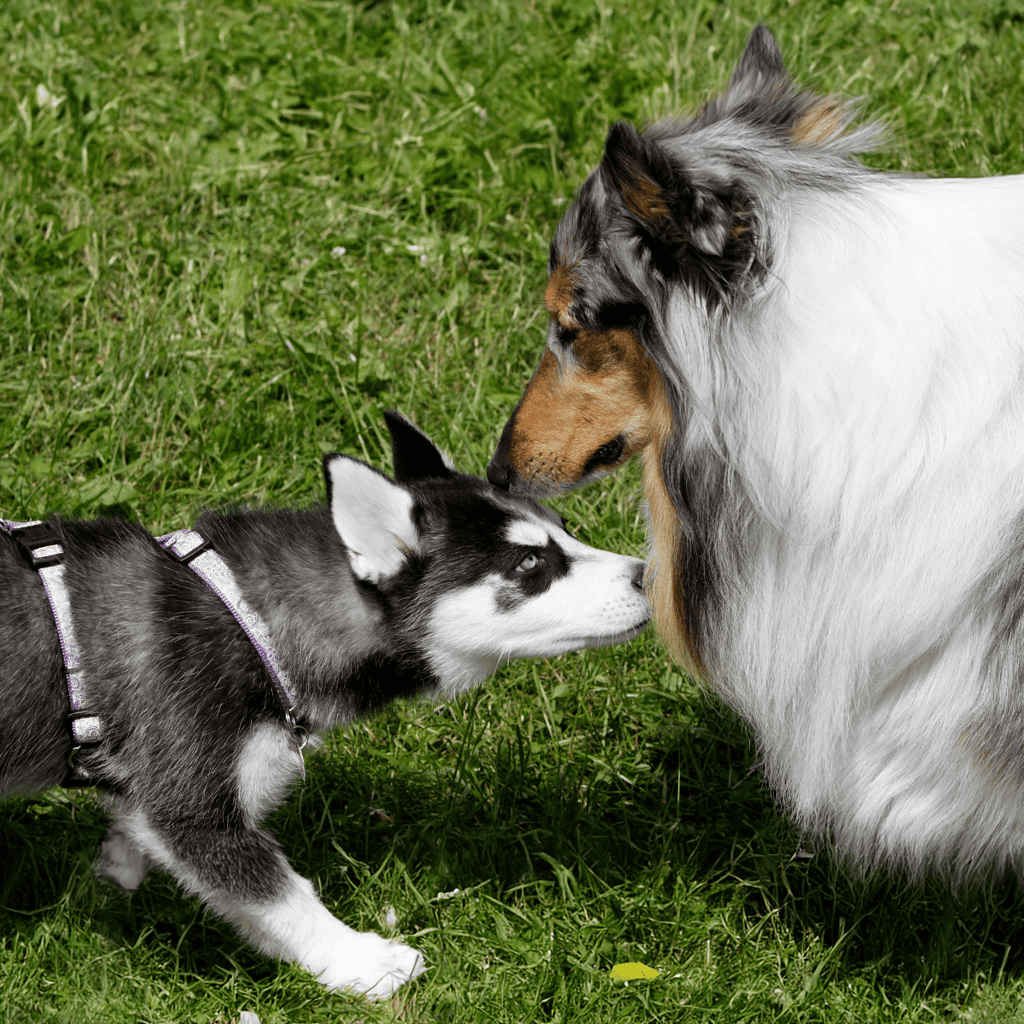
However, due to their herding instincts, Collies might try to herd smaller pets, necessitating supervision to ensure all household animals remain safe and harmonious. This early introduction to pets and consistent supervision reinforce harmonious coexistence.
Food & Diet Requirements
Collies are energetic dogs that need a balanced diet to stay healthy. They usually thrive on two complete meals a day. Consistency in feeding schedules and dividing the daily intake into morning and evening meals is vital. Treats should be occasional and not exceed 10% of the daily caloric intake, ensuring high-quality food tailored to their age, size, and activity level.
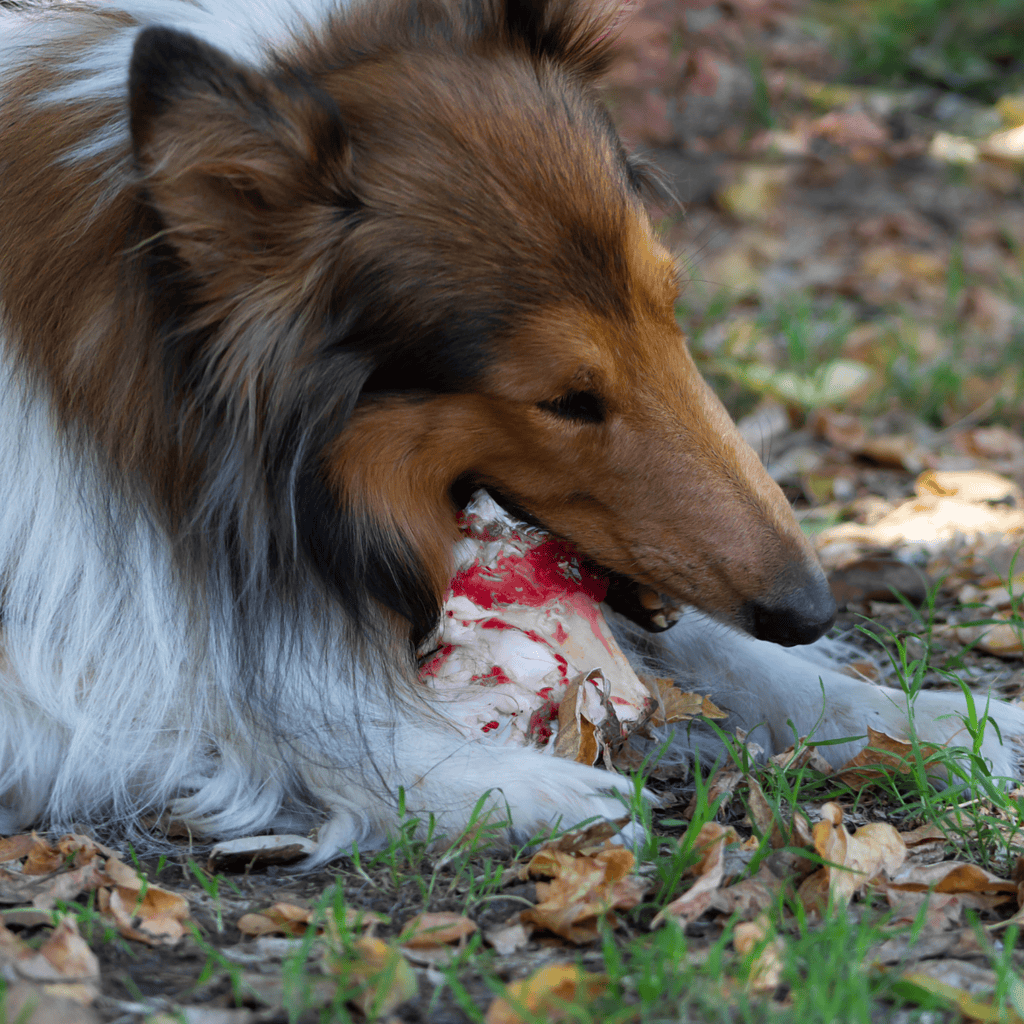
Dietary requirements vary with age; puppies require 3 to 4 small meals daily, adults need two measured meals, and seniors require health-based adjustments. Regular veterinary check-ups are crucial for maintaining a healthy weight and meeting nutritional needs, making consultations for personalized dietary advice beneficial.
Exercise
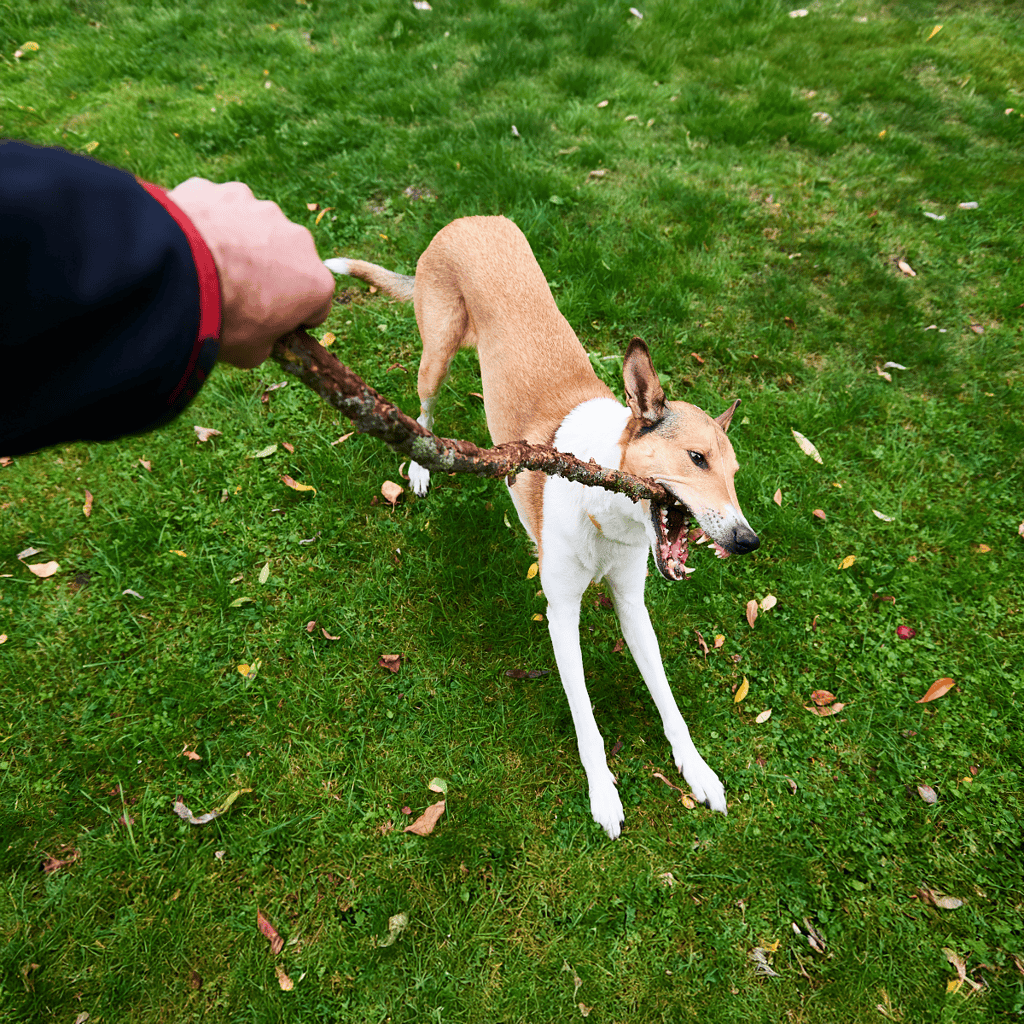
Collies are an active breed that requires regular physical activity to thrive. Daily aerobic exercise is essential, and activities like fetch or jogging are great options. A fenced yard is beneficial because it offers a safe space for them to roam freely. In addition to regular exercise, it’s essential to take them for daily walks as Collies enjoy bonding time with their owners.
Avoid leaving Collies confined to the backyard for long periods to prevent boredom, which can lead to excessive barking and restlessness. Collies are social and adaptable, and they prefer being with their owners. They are ready for action when needed and calm when it’s time to relax.
Training
Collies are brilliant dogs that excel with training, especially when started early in puppy classes for socialization and basic commands. These classes are just the beginning, as continuous learning and positive reinforcement techniques like treats, praise, and play keep them motivated. Activities such as obedience, agility, herding, barn hunting, and lure coursing are excellent for keeping them engaged.
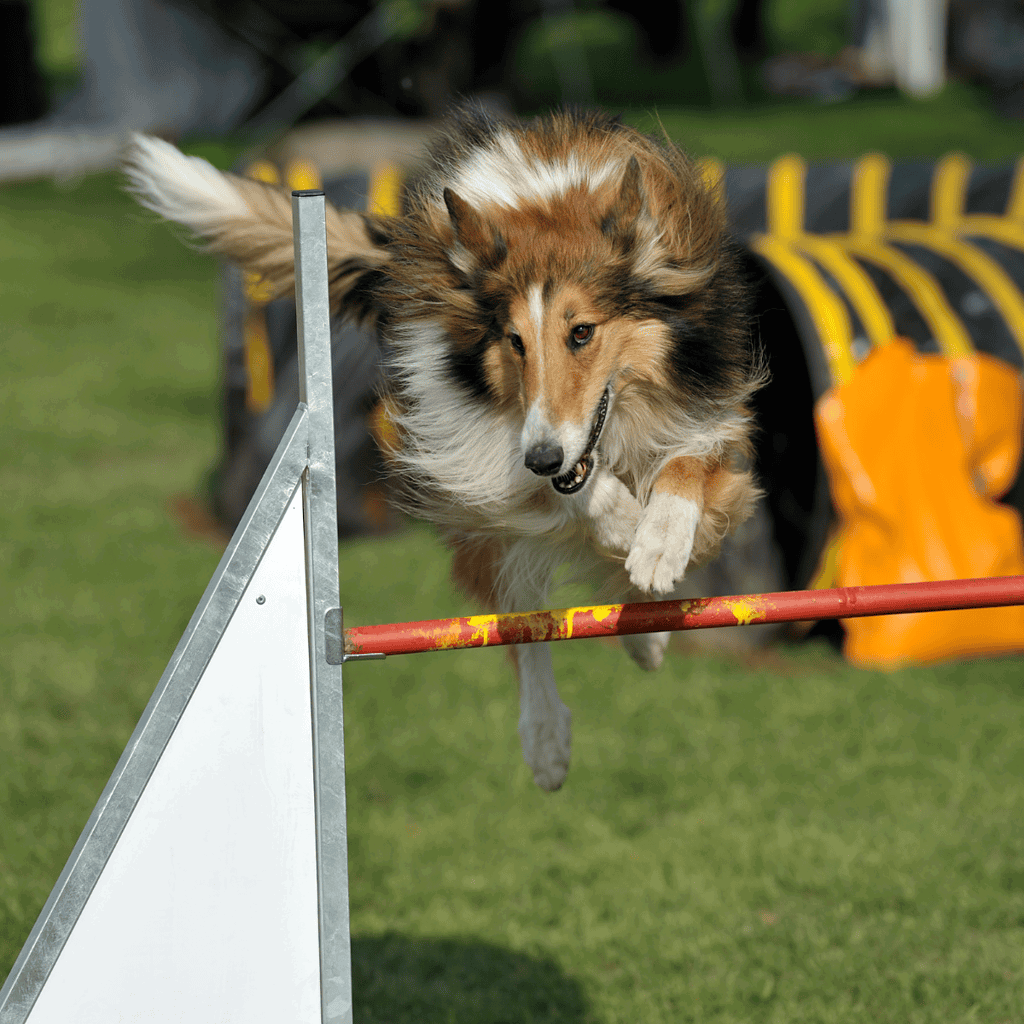
Regular and varied training sessions are crucial to maintaining Collie’s interest and mental stimulation. Short, frequent training periods are more beneficial than longer, sporadic ones. By consistently applying patience and positive reinforcement, Collies develop deep bonds with their owners and become well-adjusted family members, excelling in various tasks and activities.
Grooming
Two coat types distinguish collies: Smooth and Rough, each demanding different grooming. Smooth Collies need regular brushing to manage their double coat, with particular attention during shedding to prevent undercoat buildup.

Male and female Collies display distinct differences as they grow older. Males tend to be taller and heavier and have a sturdier build with broader heads and deeper chests. Their tails often appear fluffier. Females are smaller and more agile, coming into heat for 3-4 weeks twice a year unless spayed. Regarding temperament, males usually seek attention and affection, while females often exhibit a more aloof attitude and show greater independence.
Male Vs. Female
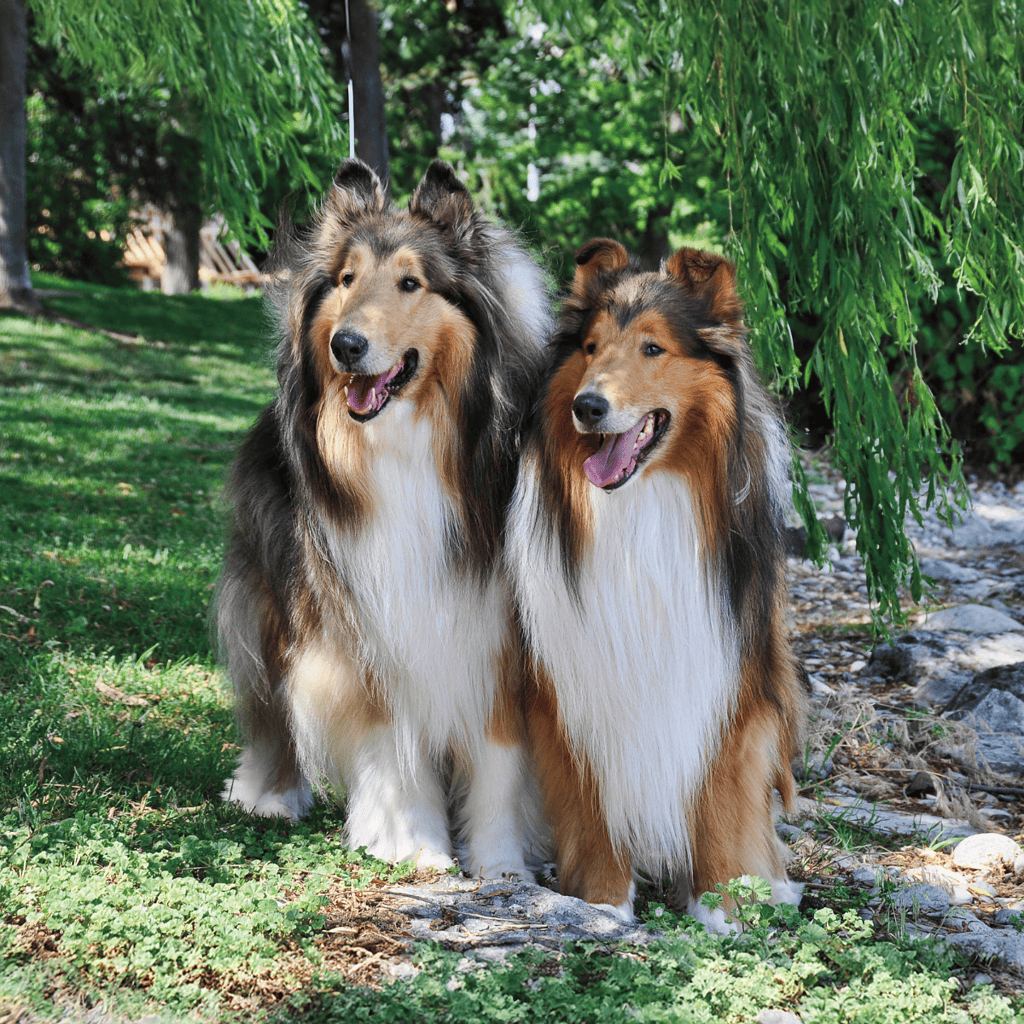
Male and female Collies display distinct differences as they grow older. Males tend to be taller and heavier and have a sturdier build with broader heads and deeper chests. Their tails often appear fluffier. Females are smaller and more agile, coming into heat for 3-4 weeks twice a year unless spayed. Regarding temperament, males usually seek attention and affection, while females often exhibit a more aloof attitude and show greater independence.
Fact #1: Their Tail Position Has a Distinct Purpose
When a Collie is engaged in work, its tail is positioned between its hind legs to avoid injury from livestock, ensuring its tail is safe and works efficiently. This stance helps protect the dog from being accidentally stepped on.
Conversely, when herding duties are finished, and the Collie is leading the herd back, its tail lifts as a signal to the herd and handler, facilitating better communication and demonstrating the dog’s focus and command of the situation.
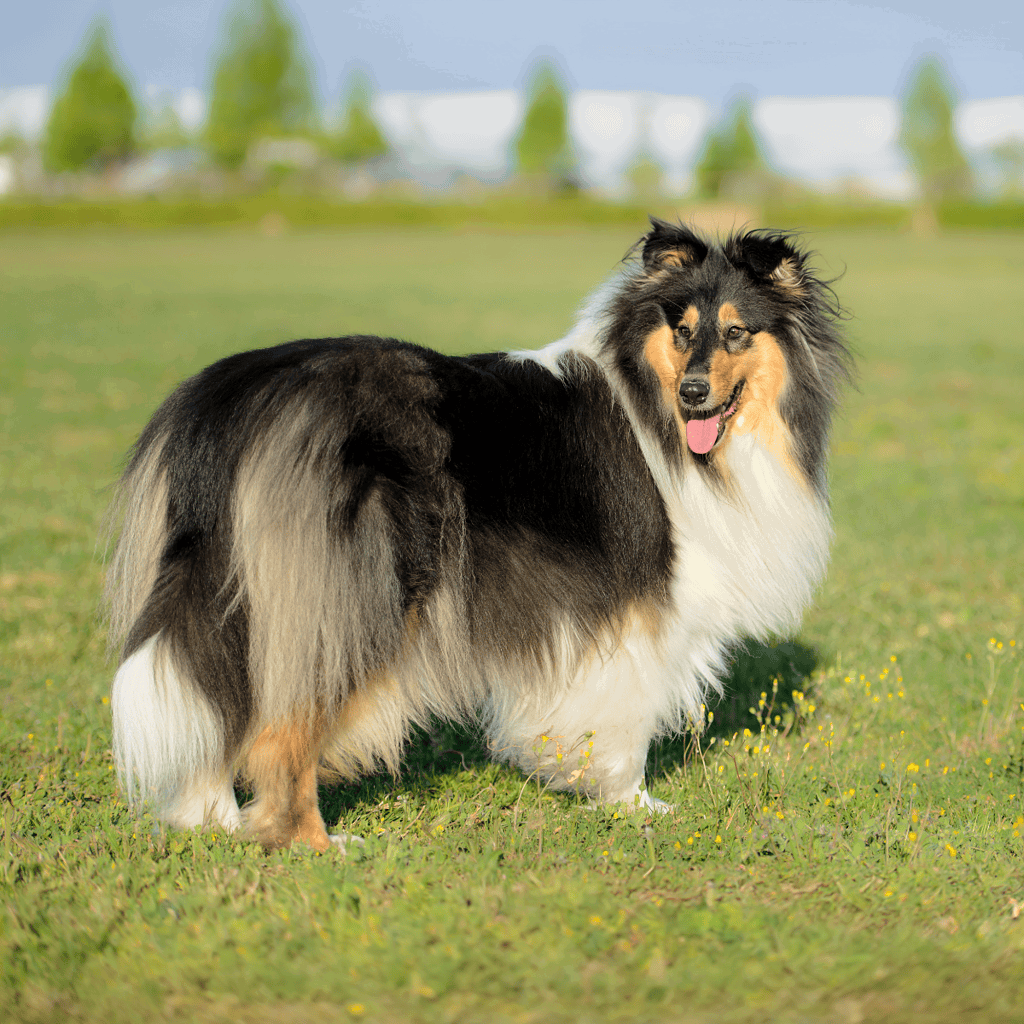
Additionally, the tip of Collie’s tail usually sports a white flare, known as the Shepherd’s Lantern, aiding visibility in dim light. This feature is beneficial early in the morning or evening, making it easier for handlers to spot the dogs. Standard and Border Collies exhibit this characteristic, enhancing visibility in less-than-ideal lighting conditions.
Fact #2: Collies and Border Collies are different breeds.
Though they share a part of their name, Collies and Border Collies exhibit distinct differences. Standard Collies are larger and more robust, with a typically luxurious coat stemming from their “coaly” black origins. Their breed is deeply tied to herding and working dog roles, showcasing diverse yet specific traits.
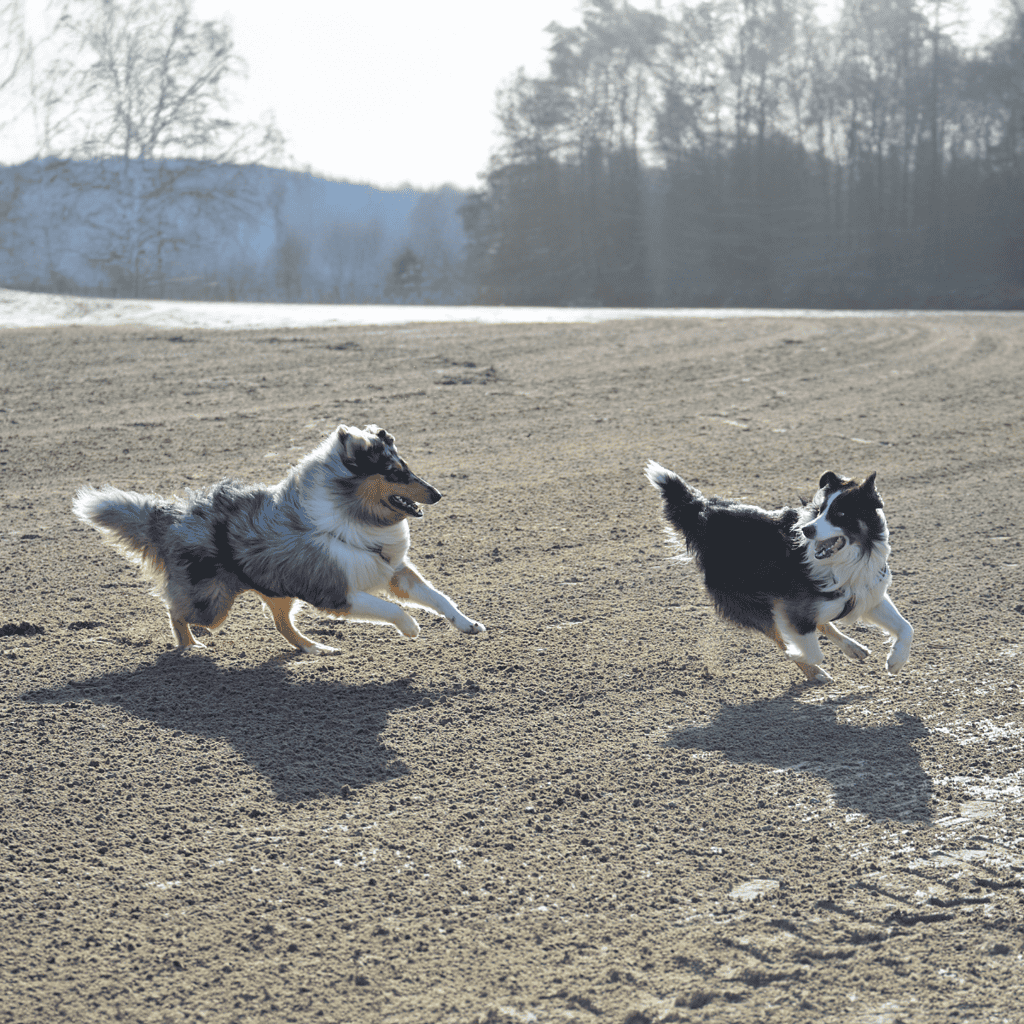
In contrast, Border Collies, named after their origin along the Scotland-England border, presents a smaller, more streamlined physique. They possess either smooth or rough coats and are known for their agility and energetic nature. This difference in physical attributes and coat types distinguishes them from their Collie counterparts.
Frequently Asked Questions
What is the average weight range for a Collie?
Collies typically weigh between 50 to 70 pounds. Males are usually on the higher end of the range, while females tend to be lighter.
What personality traits are typically seen in Collies?
Collies are known for their intelligence, loyalty, and gentle nature. They are often good with children and other animals and eager to please their owners.
How long do Collies generally live?
The average lifespan of a Collie is 12 to 14 years. However, this can vary based on genetics, diet, and overall care.
What are the standard size dimensions of a Collie?
Collies generally stand 22 to 26 inches tall at the shoulder. Their well-proportioned build contributes to their agility and grace.
What variety of colors do Collies come in?
Collies come in several colors, including sable and white, tricolor (black, white, and tan), blue merle, and white. Each color variation has its unique beauty.
How often do Collies require grooming?
Collies need regular grooming, ideally once or twice a week. This helps manage their long, double coat and reduces shedding. More frequent grooming may be required during the shedding season.

Didn’t find what you need? Use the search!
Search our database of over hundreds of posts with up-to-date information from our experts and veterinarians.

